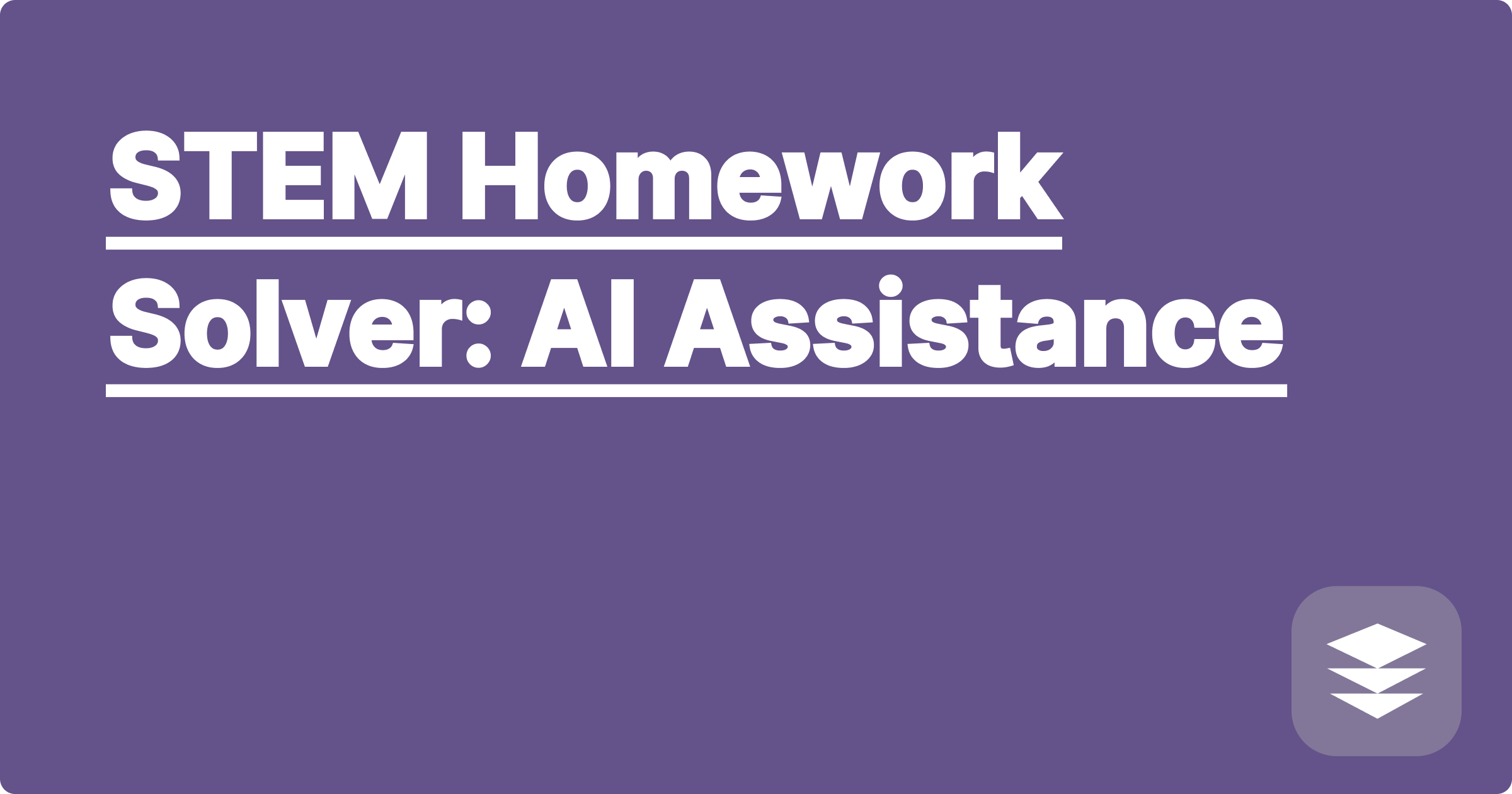
The demanding world of STEM education and research often presents complex challenges that can leave students and researchers feeling overwhelmed. From intricate mathematical proofs to elaborate coding projects, the sheer volume and complexity of the work can be daunting. Fortunately, the rise of artificial intelligence offers a powerful new set of tools to assist in navigating these difficulties. AI can act as a supportive companion, providing guidance, insights, and even direct assistance in tackling challenging STEM problems, ultimately fostering deeper understanding and accelerating progress.
This new paradigm of AI assistance has profound implications for STEM students and researchers. It offers the potential to democratize access to complex problem-solving resources, allowing students from diverse backgrounds to overcome traditional barriers. Researchers can leverage AI to automate tedious tasks, freeing up valuable time for more creative and strategic pursuits. By embracing these powerful tools, STEM practitioners can unlock new levels of efficiency and innovation, pushing the boundaries of their respective fields.
STEM fields often involve intricate problems requiring deep conceptual understanding and technical proficiency. These problems can range from deriving complex mathematical formulas to designing intricate algorithms for computer programs. One common challenge involves solving differential equations, which describe the rate of change of a system over time. These equations are fundamental to various STEM disciplines, including physics, engineering, and economics. Another significant hurdle is mastering programming languages like Python or C++, which are essential for data analysis, simulations, and software development. These languages require precise syntax and logical thinking, often posing a steep learning curve for beginners. Furthermore, understanding complex scientific concepts, such as quantum mechanics or organic chemistry, often requires visualizing abstract models and grasping intricate relationships between different variables. These challenges can be intellectually demanding and time-consuming, requiring significant effort and dedication to overcome.
AI tools like ChatGPT, Claude, and Wolfram Alpha offer powerful capabilities for tackling these STEM challenges. ChatGPT and Claude, for example, can be used to explain complex concepts in natural language, providing step-by-step explanations and clarifying confusing terminology. They can also generate code snippets in various programming languages, assist with debugging, and even suggest alternative approaches to a problem. Wolfram Alpha excels in symbolic computation, making it an invaluable tool for solving mathematical equations, performing statistical analysis, and generating visualizations. By combining the strengths of these different AI tools, students and researchers can create a comprehensive support system for their STEM endeavors.
Let's consider the process of solving a differential equation using Wolfram Alpha. First, clearly define the equation you want to solve. This includes specifying the equation itself, any initial conditions, and the variable you want to solve for. Next, open the Wolfram Alpha interface and enter the equation in a format that the system understands. For example, to solve the differential equation y' + y = 0, you would enter "y' + y = 0". Wolfram Alpha will then process the input and display the solution, often in both symbolic and graphical forms. It will also provide additional information, such as the general solution and any special cases. This process allows you to quickly obtain accurate solutions to complex differential equations without the need for manual calculations.
Consider the problem of calculating the volume of a sphere. The formula for the volume of a sphere is V = (4/3)πr³, where r is the radius. If we have a sphere with a radius of 5 cm, we can use Wolfram Alpha to calculate the volume by entering "volume of sphere radius 5 cm". Wolfram Alpha will then display the result, approximately 523.6 cubic centimeters. Another example is using ChatGPT to generate Python code for calculating the factorial of a number. By prompting ChatGPT with "Write a Python function to calculate the factorial of a number," it will provide a code snippet that can be directly implemented in a Python program. These examples demonstrate the practical utility of AI tools in solving real-world STEM problems.
To effectively leverage AI in STEM education and research, consider these strategies. First, develop a strong foundational understanding of the underlying concepts before relying on AI tools. This will allow you to critically evaluate the output generated by the AI and identify any potential errors or inconsistencies. Second, experiment with different AI tools and find the ones that best suit your specific needs and learning style. Each tool has its own strengths and weaknesses, so it's essential to find the right combination for your workflow. Third, use AI as a supplement to, not a replacement for, traditional learning methods. AI tools should be viewed as powerful assistants that can enhance your understanding and efficiency, but they should not replace the crucial process of active learning and critical thinking.
Conclude by actively exploring the diverse range of AI tools available and experimenting with their applications in your STEM coursework or research. Embrace these powerful tools as valuable allies in your academic journey, empowering you to overcome challenges and achieve new levels of success. By combining your own intellect with the capabilities of AI, you can unlock your full potential and contribute to the advancement of STEM fields.
Ace STEM Exams: AI Study Planner
STEM Homework Solver: AI Assistance
AI for Lab Data: Analysis Made Easy
Master STEM: AI Exam Prep Guide
AI Coding Tutor: Debug Smarter
AI in Engineering: Boost Your R&D